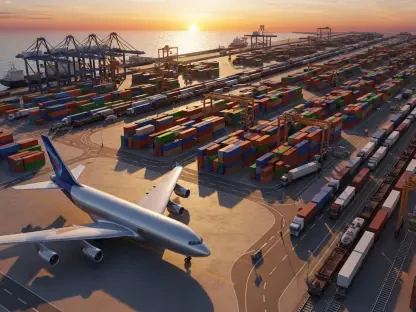The European Union (EU) has recently imposed anti-dumping tariffs on Chinese electric vehicles (EVs), marking a significant shift towards protectionism in global trade. This move has far-reaching implications for the automotive industry and international trade dynamics. The following sections provide an in-depth analysis of the background, rationale, and consequences of these tariffs.
Background and Rationale for EU Tariffs
Initiation of Anti-Dumping Investigation
On October 4, 2023, the EU launched an anti-dumping investigation into Chinese-manufactured electric vehicles. The investigation aimed to determine whether Chinese EVs were benefiting from state subsidies, which could distort competition and harm the EU’s automotive industry. The European Commission found substantial state subsidies in the Chinese EV value chain, leading to the introduction of provisional countervailing duties on July 4. These measures have now become definitive, lasting for five years starting from October 30.
The imposition of these tariffs comes after mounting concerns from European automakers who voiced fears that Chinese EV manufacturers, bolstered by significant state funds, could undercut prices and capture a significant share of the market. The extensive subsidies identified by the EU commission confirmed these suspicions, leading to a firm stance on protecting the domestic market. This investigation and its outcomes represent a broader trend of increasing bilateral and multilateral tensions in international trade, emphasizing the EU’s commitment to protecting its industries from unfair competition.
Market Presence of Chinese Brands in Europe
Chinese electric vehicle brands have been gaining traction in the European market, with their share in total new car registrations in the EU expected to exceed 1% in 2024. For battery electric vehicles (BEVs), Chinese brands already hold a market share of over 8%, which has significantly increased over the past five years. Despite a slight drop in the EU’s BEV market share to 13% in the first three quarters of the year, the EU’s commitment to transitioning to electric vehicles is expected to boost this share sharply between 2025 and 2035, bringing affordable Chinese cars to the forefront.
The affordability and growing quality of Chinese EVs have made them increasingly appealing to European consumers, who are looking for more cost-effective options amid the shift towards electrification. The lower production costs in China, coupled with state subsidies, have allowed Chinese manufacturers to offer competitive pricing that attracts a broad range of buyers. This increasing presence in the European market indicates a shift in consumer preferences and illustrates the growing acceptance of Chinese brands outside their home territory, a development that is causing considerable concern among European legacy automakers.
Impact on Chinese and Western Car Manufacturers
Tariffs on Chinese Brands
The EU has implemented varying levels of duties based on the extent of producer cooperation in the anti-subsidy investigation and the level of subsidies received. Duties for three sampled Chinese producers are as follows: BYD (17%), Geely (including Polestar and Volvo) (18.8%), and SAIC (including MG) (35.3%). Other manufacturers producing in China are subject to additional duties of 20.7%, with non-cooperating companies facing duties of 35.3%. Notably, Tesla, which underwent individual examination, faces a lower duty of 7.8% due to receiving lower subsidies compared to other Chinese manufacturers. These duties aim to create a level playing field for manufacturers in China and the EU.
These measures, though stringent, are designed to encourage fair competition and ensure that no party gains an undue advantage through government assistance. The significant discrepancy in duty rates between cooperating and non-cooperating companies highlights the EU’s focus on transparency and adherence to international trade norms. While these tariffs may present short-term logistical and financial challenges for Chinese manufacturers, they also serve as a clear message reflecting the EU’s strong stance against unfair trade practices.
Effects on Western Brands Producing in China
Western brands like BMW, Dacia, and Renault, which produce in China and export to the EU, are also affected by the additional 20.7% import duty. Around 60% of imported cars, including Tesla’s Model 3 and Volvo’s EX30, are Chinese-built EVs by Western brands. The EU’s stance is that these manufacturers act as traders rather than producers, thus subjecting them to the same tariffs. This highlights the dual objectives of promoting fair competition and protecting domestic industries.
These additional duties are forcing Western brands to reassess their production strategies, balancing cost efficiencies with the need to avoid prohibitive tariffs. The implications for their business models are considerable, as they may need to invest in new facilities within EU borders or secure partnerships with local manufacturers to maintain their market presence without significant cost hikes. This move underscores the growing importance of localizing production to navigate changing trade landscapes and maintain competitive edge.
Strategic Responses and Future Moves
Chinese Brands’ Adaptation Strategies
Despite the tariffs, Chinese brands are likely to continue establishing a presence in Europe. Profit margins usually exceed the tariff increases, and brands like BYD are preparing to set up production in Turkey and Hungary to mitigate the impacts. This strategic move aims to maintain their competitive edge in the European market while avoiding the newly imposed tariffs.
This adaptability demonstrates the resilience and forward-thinking strategies of Chinese automakers. Establishing production bases within Europe not only sidesteps the new tariffs but also allows these companies to respond more swiftly to local market demands and regulatory changes. Moreover, these moves could foster closer ties with European suppliers and technology partners, ultimately enriching their technological capabilities and innovation potential. The shifting geographical footprint of these brands underscores their commitment to sustainable growth in international markets.
Western Brands’ Shift Towards Domestic Production
The tariffs may also accelerate the shift towards domestic production in Europe by Western brands. For instance, Volvo is expanding its EX30 production in Ghent, Belgium, due to higher European demand and the need to avoid tariffs on EV imports into the US. This shift underscores the importance of local production in maintaining competitiveness in the face of protectionist trade policies.
Domestic production offers several strategic benefits, including enhanced supply chain stability, reduced transportation costs, and improved alignment with local regulatory standards. Moreover, manufacturing within the EU may enhance brand perception among European consumers who prioritize local production and sustainability. As new facilities come online, these brands will likely innovate and adapt their production practices, optimizing for efficiency and pushing forward the frontiers of EV technology. Such production shifts represent broader strategic pivots essential for navigating the complexities of current global trade environments.
Potential Retaliation and Broader Trade Implications
Risk of Retaliatory Measures by China
Although there have been trade talks between China and the EU, final tariffs have not been averted, raising concerns about retaliatory actions from China. Several EU member states, including Germany, Slovakia, Slovenia, Hungary, and Malta, opposed additional tariffs but failed to block the qualified majority decision. Potential retaliatory tariffs by China on products such as brandy, pork, and cars are a risk but are unlikely to escalate into a full-scale trade war. Both the EU and China have significant economic interests in maintaining stable trade relations.
While the dynamics of retaliation remain uncertain, any imposed measures could significantly impact a broad range of industries, emphasizing the interconnected nature of global trade. Manufacturers, exporters, and consumers on both sides would likely feel the impact, highlighting the risks inherent in escalating trade disputes. However, the potential for dialogue and negotiation remains, as both parties have much to lose from protracted economic conflicts. Diplomatic and economic strategies will be crucial in navigating these evolving trade relations.
Increasing Global Trend Towards Protectionism
The European Union has recently taken a decisive step by imposing anti-dumping tariffs on Chinese electric vehicles (EVs). This marks a notable pivot towards protectionism in global trade. These tariffs carry significant implications for the automotive industry and the broader dynamics of international trade.
The move by the EU aims to counteract what it sees as unfair trade practices by Chinese EV manufacturers. These companies are often accused of selling their vehicles at prices below market value, thanks to substantial government subsidies. Such practices have been viewed as threatening to the competitive landscape of the EU’s own automotive industry. By imposing these tariffs, the EU hopes to level the playing field for European manufacturers, allowing them to compete more fairly against their Chinese counterparts.
This decision is expected to influence global trade relations, potentially leading to increased tensions between the EU and China. It could also prompt other regions to adopt similar measures, creating a ripple effect throughout the global economy. For consumers, these tariffs might result in higher prices for Chinese EVs in the European market, possibly shifting demand towards locally produced vehicles.
In summary, the EU’s imposition of anti-dumping tariffs on Chinese electric vehicles signifies a major shift towards protectionist policies, with broad implications for both the automotive industry and international trade relations.









